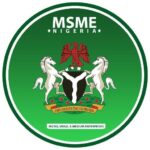To ensure economic growth and promote youth inclusiveness in regional development in the Niger Delta, there is a need to invest in Micro, Small, and Medium Enterprises (MSMEs) as a catalyst to create employment and ensure global competitiveness. This was a position canvassed at the maiden edition of the Niger Delta Micro, Small, and Medium Enterprises Summit 2021 which was held at the Aztech Event Centre, Port Harcourt, Rivers State.
The Executive Secretary of the Nigerian Content Development and Monitory Board (NCDMB), Engr. Simbi Wabote noted that there is an emerging global economic order which the youths should brace up and be a part of its evolution. He said, “We need to continue with the effort to grow the MSME by challenging young people to engage strategically, to strive, and to compete in the new world economic order”.
He noted that energy transition has become an immediate reality for which everyone interested in economic development should be mindful, especially the youths of the Niger Delta.
- 15 sailors kidnapped off Nigeria coast freed
- United Nigeria Airlines inaugural flight lands in Enugu
Engr. Wabote went further to address five fundamental issues that he said were critical to various MSME interventionist efforts.
He said there is a need to acknowledge the steady shift from oil to sustainable energy, Engr Wabote noted that the MSME is the engine room of the Nigerian economy therefore there is a need to address the numerous challenges facing the MSME in Nigeria. He noted that there have been several interventions by the present administration, led by President Mohammed Buhari, which are geared towards enabling the growth of small businesses, and these included the ease of doing business policy and the other programs such as TraderMoni, and others meant to enable MSMEs in the country.
Engr Wabote said “the efforts of the current federal government to enable MSME include the Federal government intervention fund at single digit, the presidential effort to remove an obstacle for businesses to thrive with ease of registration of business with the Corporate Affairs Commission (CAC), ongoing efforts to construct or rehabilitate more roads and bridges to enable movement of people and goods, the various technology policies to drive innovation and the anchor borrows programs, trader money, agric business intervention scheme, etc”
He highlighted the NCDMB special interventions on MSME growth to include the deployment of partway to stimulate growth in the areas of enterprise development, funding, and human capital development.
Engr. Wabote worried that at the pace at which energy transition is going, Niger Delta crude oil may end up as the coal in Enugu, where oil will disappear without fulfilling its full potentials.
He said by 2040 more than 25% of vehicles worldwide will come from electric cars saying that has brought home the need to have a growth part for new and sustainable businesses in the region.
On his part, the interim administrator of the Niger Delta Development Commission (NDDC) Mr. Efiong Akwa called for greater investment in MSMEs as a way to create sustainable jobs and to boost the economy of the region. He said the NDDC is undergoing a crucial transformation by way of the ongoing forensic audit, however, that the agency will continue to support the growth of businesses in the region.
Speaking at the event, the Convener of the Summit and Chairman Mosilo Group who is also the Founder of Nigerian Young Professionals Forum (NYPF) and Niger Delta Young Professionals, under which umbrella the summit was organized, Mr. Moses Siloko Siasia, noted that the greatest contributory factor to the growth in Nigeria’s Gross Domestic Product (GDP) is a collection of the committed efforts from young people, including youths of the Niger Delta, who are resilient and passionate about building industries and promoting economic prosperity but who are most often neglected and denied support by government and relevant agencies.
Siasia noted that the youth of Nigeria has been at the forefront of pioneering growth and innovations in technology, agriculture, entertainment, and sports which have brought in revenues for the country and have also boosted the image of the country. He said that the efforts of youths have provided a good international advantage for Nigeria through participation in sports, music, and entertainment and even in talent contribution worldwide in the areas of medicine, education, engineering, and other aspects of global competitiveness and development.
He, however, regretted that there has not been any concerted effort to harness and grow the potentials of the youths.
He said “the success of Niger Delta depends on the efforts of the youths, and as the world is looking beyond oil today, a comprehensive and well-coordinated institutional support for youths in Niger Delta should be topmost in the development agenda” noting that this particular essence gave rise to the Niger Delta Micro, Small and Medium Enterprises Summit with the vision being to create a Niger Delta Entrepreneurship Hub which will provide training, funding, mentorship, and support for small businesses in the region.
Siasia advocated for the establishment of a Niger Delta Entrepreneurship Hub, a platform that will bridge the gap currently existing and train, equip and engage teeming Niger Delta youths, thereby creating sustainable livelihood opportunities for them, instead of waiting for handout or turning our youths into beggars in a region that is full of abundance.
According to him, other Initiatives under the Niger Delta Entrepreneurship Hub will include the Implementation of a workable Niger Delta Entrepreneurship, Dev Fund, which will give life wire to only serious MSME with a genuine need for equipment purchase, expansion, export, technology acquisition, and packaging and to ensure a workable Engagement/ Youth Development Policy, backed by the law of Niger Delta State Houses of Assembly.
“This will enable us to institutionalize proper access to opportunities both at the state and federal level,” he said.

 Join Daily Trust WhatsApp Community For Quick Access To News and Happenings Around You.
Join Daily Trust WhatsApp Community For Quick Access To News and Happenings Around You.


